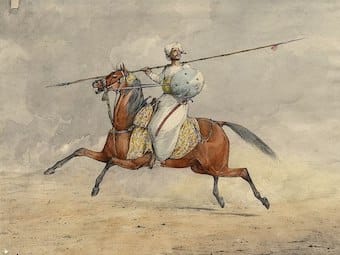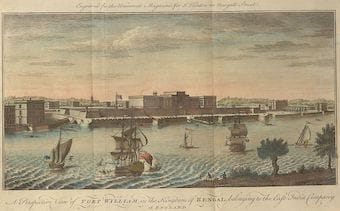Shortly after the Second Maratha War ended in 1805, Indian historian Harsukh Rai reflected on the advantages of living in a society governed by the English. They English, he said, did not have the sheer numbers that other conquering armies had brought to India, but had nonetheless achieved more peace and security than any of them.
Harsukh Rai picked out the British justice system for special praise. It was, he said, complex and exhaustive but also strict and impartial, avenging and deterring crime regardless of wealth or social class. So efficient were the courts, that even highwaymen had resigned their trade, and were courteously directing lost travellers safely to their destination.
110 words



